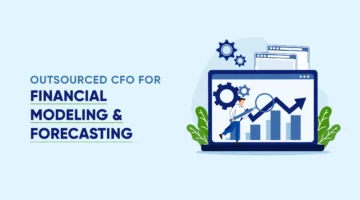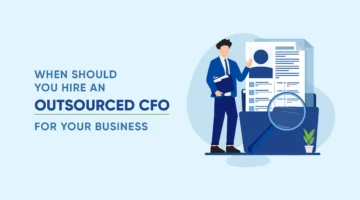The CFO of the Future: CFOs No Longer Need an Accounting Background
As the world of accounting and finance progresses into the future, the role that Chief Financial Officers (CFOs) serve in their companies is evolving. To accommodate this evolution, research and business trends are showing that the role of the CFO is moving away from an accounting-type role. In fact, the CFO of the future may not need an accounting background at all.
A New Landscape
Traditionally, companies have chosen to appoint a CFO from the top tiers of their accounting and finance department, or from a pool of outside candidates with similar experience. This is primarily attributable to changes in the industry brought on by the 2002 Sarbanes-Oxley Act. In 2002, a new focus on financial reporting and compliance made appointing a CFO with an accounting background a strong strategic move.
This trend is seeing a definite shift. According to a report by the Wall Street Journal in conjunction with the organizational consulting firm Korn Ferry, the number of CFOs with Certified Public Accountant (CPA) experience dropped drastically from 2019 to 2020. Instead, companies are hiring CFOs with a background in business or finance and an experiential focus on strategy and transparency, especially in light of recent financial crises.
CFO: A Role Born from Crisis
After 2008, when a recession born from crisis plagued the economy, the role of the CFO began to change. Companies began to focus less on the changes the 2002 Sarbanes-Oxley Act brought to the accounting and finance world. After all, how can you focus on documenting money when you don’t have it? Instead, companies were searching for a candidate that could help them weather the financial storm. Someone who could not only help them strategize how to get through the financial crisis, but succeed beyond it.
This is how today’s CFO was born. Now, when companies think CFO, they think strategy. Candidates coming to this role need experience with strategy, and with following through on that strategy. Companies want to know they can weather the next recession with their CFO at the helm, and keep growing as well.
The CFO of the Future
Today’s CFO is responsible for overseeing more than just the accounting and finance department. Instead, they now serve a role more integral to the function of the entire company. This includes interaction with Human Resources, Information Technology and even risk management. To accommodate this change, companies want a CFO with a firm grasp on company operations.
Instead of serving the role of a lead technical accountant for the company, the CFO of the future will serve as the company’s visionary. Their new role will involve expanding and streamlining operations to accommodate new growth. This will ensure that the company’s cashflow can see it through. Strategy is increasingly the name of the game for new and aspiring CFOs.
Implications for Other Roles
The CFO roles’ move away from an accounting background will have implications for other accounting roles in the company. Because of the reduced focus on technical accounting, the need for Chief Accounting Officers (CAOs) and controllers with extensive accounting backgrounds will grow. These roles will likely see a bigger emphasis on financial reporting and compliance, since the CFO may not be able to contribute as much or at all in these areas. Their reliance on the accounting staff will increase, especially with regard to financial data to support their strategies and plans for the company.
This shift also has implications for accounting roles that have traditionally been groomed for the CFO position. People in these roles may see fewer opportunities for moving into the CFO role without strategy and operational experience. However, companies may also be expanding the opportunities for CAOs, which would bring technical accounting experience to the executive team. Accounting and finance roles groomed for the traditional CFO position may find a role there.
A Brave New World
The world of accounting and finance is constantly changing. After 2002, the accounting world saw a shift from a focus on growth to a focus on flawless financial reporting and compliance. After 2008, we saw another shift away from flawless financial reporting. It moved to a more well-rounded strategic approach for keeping the company in business despite a huge financial crisis.
The world of accounting and finance continues to rise to meet challenges the world climate and the economy have presented. This will continue to be the case. As the role of the CFO changes, so will the role of each person dedicated to accounting and finance. As the world changes, so too will each of these roles. The CFO of the future will, of course, rise to meet the changes and challenges as they come.



